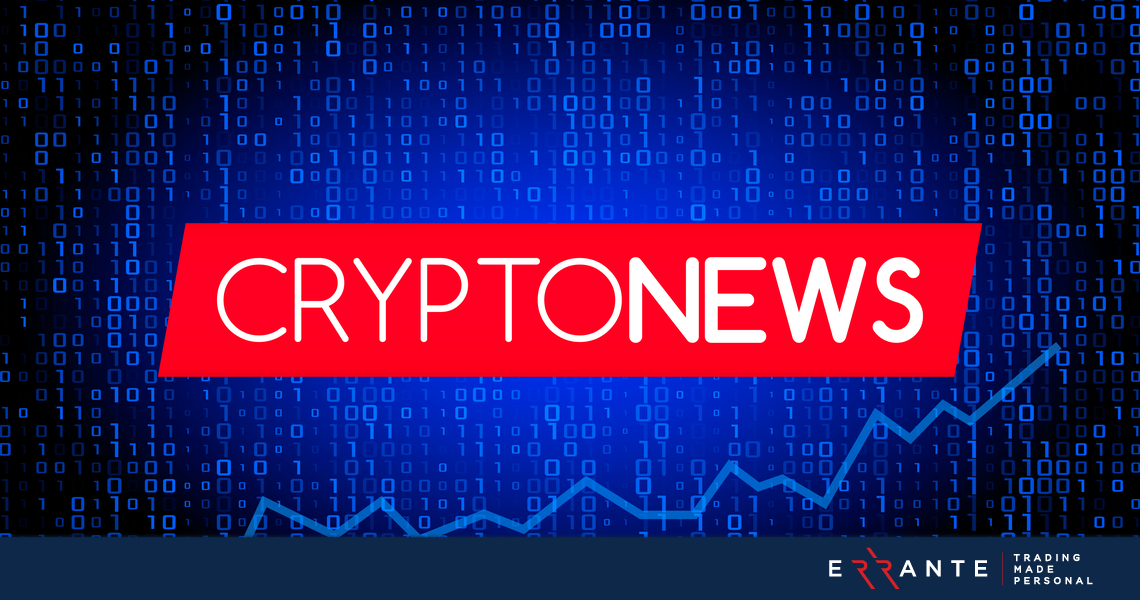Checking Out the Effect of Regulatory Modifications and Technical Innovations on Today's Digital Currencies Headlines
The intersection of regulatory modifications and technological technologies is essentially modifying the landscape of electronic currencies, motivating a re-evaluation of their duty in the international economic situation. Governing bodies, such as the SEC and CFTC, are proactively affecting just how electronic assets are identified, while new modern technologies are enhancing deal performances and security procedures. This dual evolution increases crucial inquiries about the effects for market dynamics and capitalist confidence. As we explore these growths, the concern remains: exactly how will these elements form the future trajectory of electronic money in an increasingly interconnected world?
Current Regulatory Landscape
In the wake of rapid developments in electronic money, the current governing landscape is advancing to attend to the complexities and challenges posed by these technologies. Federal governments and regulative bodies worldwide are facing just how to properly supervise this growing market, which commonly transcends national borders.
Key regulative methods consist of the establishment of frameworks that specify electronic currencies, making sure customer defense and stopping illicit tasks such as money laundering and scams. In the United States, companies like the Securities and Exchange Compensation (SEC) and the Asset Futures Trading Payment (CFTC) are proactively taking part in conversations to clarify the classification of numerous digital possessions and their governing effects.
In A Similar Way, the European Union is advancing its Markets in copyright-Assets (MiCA) guideline, which aims to develop a natural regulative setting throughout participant states. Nations like China have actually chosen more stringent measures, including outright bans on certain copyright activities.
As this governing landscape remains to establish, it will be crucial for stakeholders, including organizations and customers, to remain educated and adapt to the changing environment to minimize risks while taking advantage of possibilities within the digital money ball.
Trick Technological Innovations
Various technological advancements are reshaping the landscape of electronic currencies, dramatically boosting their functionality and safety and security. One of one of the most critical innovations is the growth of blockchain technology, which gives a decentralized journal that ensures openness and immutability of purchases. copyright news. This technology not only minimizes the threat of scams yet likewise permits real-time deal verification, fostering customer count on
Furthermore, the appearance of clever contracts has actually transformed just how agreements are executed within electronic currency environments. These self-executing agreements assist in computerized purchases, removing intermediaries and lowering prices connected with typical contract enforcement. Moreover, innovations in cryptographic strategies enhance the safety and security of digital purses, protecting customers' possessions from possible cyber risks.
An additional noteworthy innovation is the assimilation of expert system in deal surveillance and scams detection, making it possible for platforms to identify questionable activities quickly. In addition, the intro of Layer 2 scaling solutions, such as the Lightning Network, addresses scalability problems, enabling faster and cheaper purchases on networks like Bitcoin.

Effect On Market Dynamics
Technical technologies in digital currencies have not just improved functionality and safety yet have also substantially altered market dynamics. The intro of blockchain technology has increased transparency and decreased transaction prices, resulting in greater effectiveness in trading and financial investment. This has actually urged a more diverse variety of participants, from retail capitalists to institutional gamers, to involve with digital currencies, therefore enhancing this article market liquidity.
Furthermore, the introduction of decentralized finance (DeFi) platforms has interfered with typical financial systems, offering individuals with different opportunities for financing, borrowing, and trading. This shift has actually fostered an affordable setting where typical banks are compelled to innovate or take the chance of obsolescence (copyright news). With the increase of stablecoins, which supply rate stability in the middle of volatility, investors can currently carry out deals with minimized danger, further affecting market actions
Additionally, the assimilation of expert system and artificial intelligence in trading approaches allows for much more advanced market evaluation and predictive modeling. As a result, investors are much better geared up to reply to market fluctuations, creating a much more dynamic trading ambience. Collectively, these innovations are improving the landscape of digital money, resulting in a much more interconnected, affordable, and effective market.

Global Perspectives on Policy
Governing techniques to digital currencies differ substantially across the world, commonly mirroring differing financial concerns, social mindsets toward innovation, and levels of technical adoption. In the USA, regulatory bodies such as the SEC and CFTC grapple with defining the lawful condition of cryptocurrencies, concentrating on capitalist security and market stability. The European Union is progressing extensive governing frameworks like the Markets in copyright-Assets (MiCA) proposition, aiming to produce a unified approach that promotes innovation while ensuring customer security.
In comparison, nations like China have actually adopted an outright ban on cryptocurrencies, prioritizing monetary control and monetary security over innovation. On the other hand, nations such as El Salvador have accepted Bitcoin as legal tender, showcasing a vibrant commitment to monetary incorporation and economic modernization.
Developing countries frequently locate themselves navigating an intricate landscape, balancing the need for regulation with the potential benefits of digital currencies in driving economic development. Generally, the international governing setting continues to be fragmented, with continuous discussions and modifications as governments look for to strike read here an equilibrium in between promoting innovation and mitigating threats associated with electronic currencies. This vibrant landscape emphasizes the requirement for continuous global cooperation and dialogue amongst regulatory authorities.
Future Fads in Digital Currencies
As regulatory structures advance, the landscape of digital currencies is poised for significant change. Emerging trends show a convergence of governing quality and technical development, which will shape the future of digital money. Central Bank Digital Currencies (CBDCs) are prepared for to acquire traction as federal governments discover their possible to boost monetary plan performance and monetary incorporation.
Simultaneously, decentralized financing (DeFi) systems are anticipated to test typical banking systems, using innovative monetary services that operate without intermediaries. This shift might bring about a re-evaluation of existing laws to accommodate the unique attributes of DeFi while guaranteeing customer defense and systemic security.
Additionally, the integration of expert system and artificial intelligence in copyright trading and risk assessment will redefine investment approaches and market characteristics. As digital money end up being increasingly conventional, problems such as cybersecurity risks and regulatory conformity will certainly necessitate robust services.
Last but not least, public perception and fostering will certainly play an important role in identifying the trajectory of digital currencies. Raised understanding and education pertaining to the advantages and risks related to digital currencies will drive acceptance, inevitably influencing the governing landscape and market growths in the years to come.
Final Thought
